
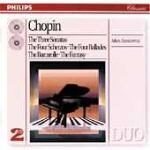
Pianist Adam Harasiewicz won the 1955 Warsaw Chopin Competition, beating out second place winner Vladimir Ashkenazy. Yet while Ashkenazy’s international career blossomed, Harasiewicz kept a
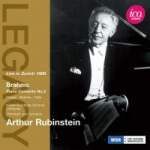
Much as Arthur Rubinstein enjoyed making recordings, he loved to play in public even more, and his extant live performances usually communicate more verve, sweep,

Ugh! So slow! were Vladimir Horowitz’s reactions to Claudio Arrau’s measured, ruminative Beethoven selections featured here. Once you accept the Chilean pianist’s unhurried, Furtwänglerian aesthetic,

While not the most impassioned and poetic reading of Chopin’s F minor concerto to be had, there’s much to be said for Eldar Nebolsin’s forthright
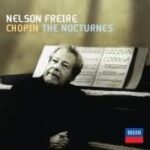
Intimacy, lyricism, and subtle textural diversity characterize Nelson Freire’s Chopin Nocturnes, as opposed to Ashkenazy’s stronger dynamic projection, Arrau’s searching rhetoric, or Moravec’s darkly-lit corners.
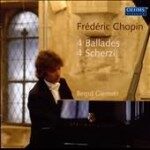
Bernd Glemser presents Chopin’s Ballades and Scherzos in an unusual yet effective running order. He alternates between each group in ascending numerical order, beginning with
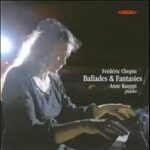
Anne Kauppi plays Chopin’s Polonaise-Fantasy with fairly steady tempos, choppy phrasing, restricted dynamics, and little tonal allure to speak of. Her pretentious rubatos, picky articulation,
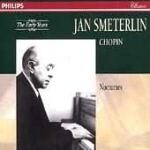
The Polish pianist Jan Smeterlin (1892-1967) left a small discography, crowned by his Chopin Nocturne cycle recorded for Philips in 1954, reissued 40 years later
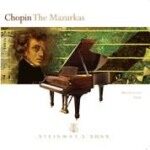
Best known for her advocacy of Latin-American composers, Mirian Conti’s first project for the newly launched Steinway & Sons label is given over to Chopin’s
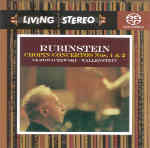
No timbral difference distinguishes RCA’s SACD of Arthur Rubinstein’s 1961 Chopin E minor concerto recording from the label’s most recent transfer in its complete Rubinstein
![]()
